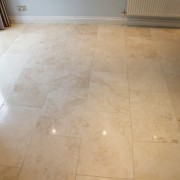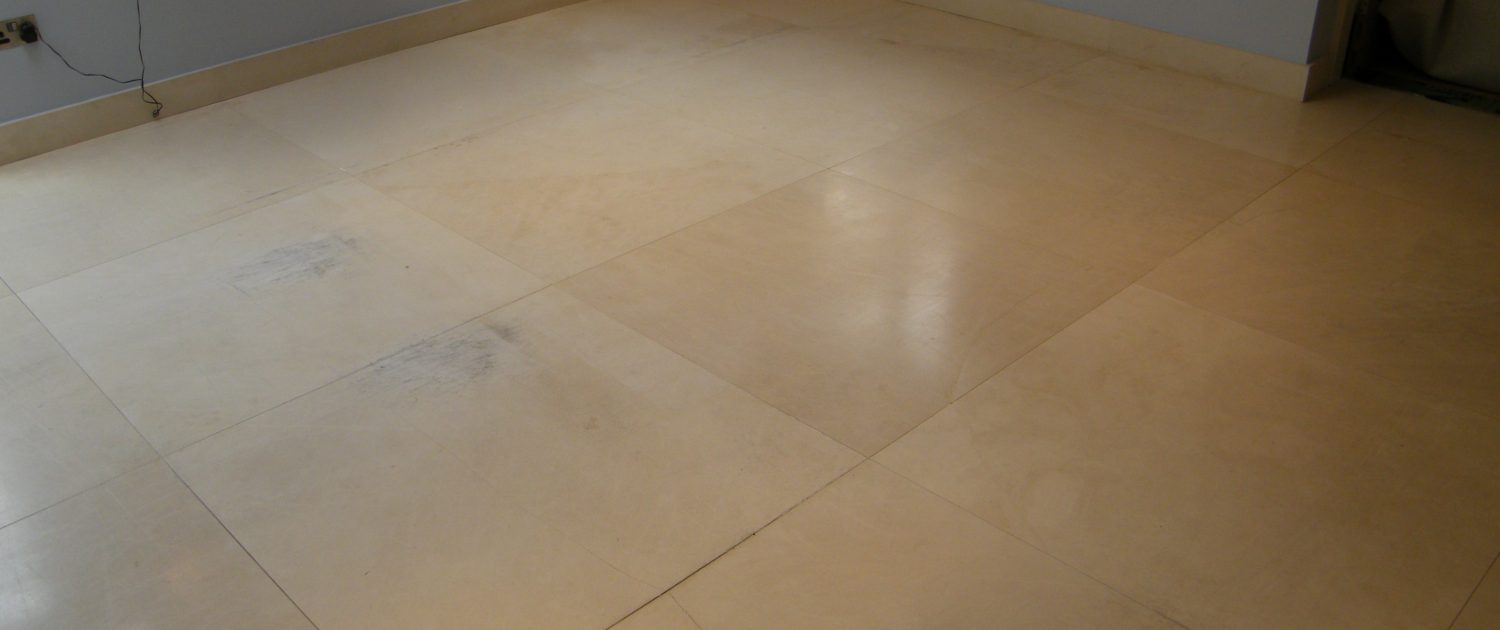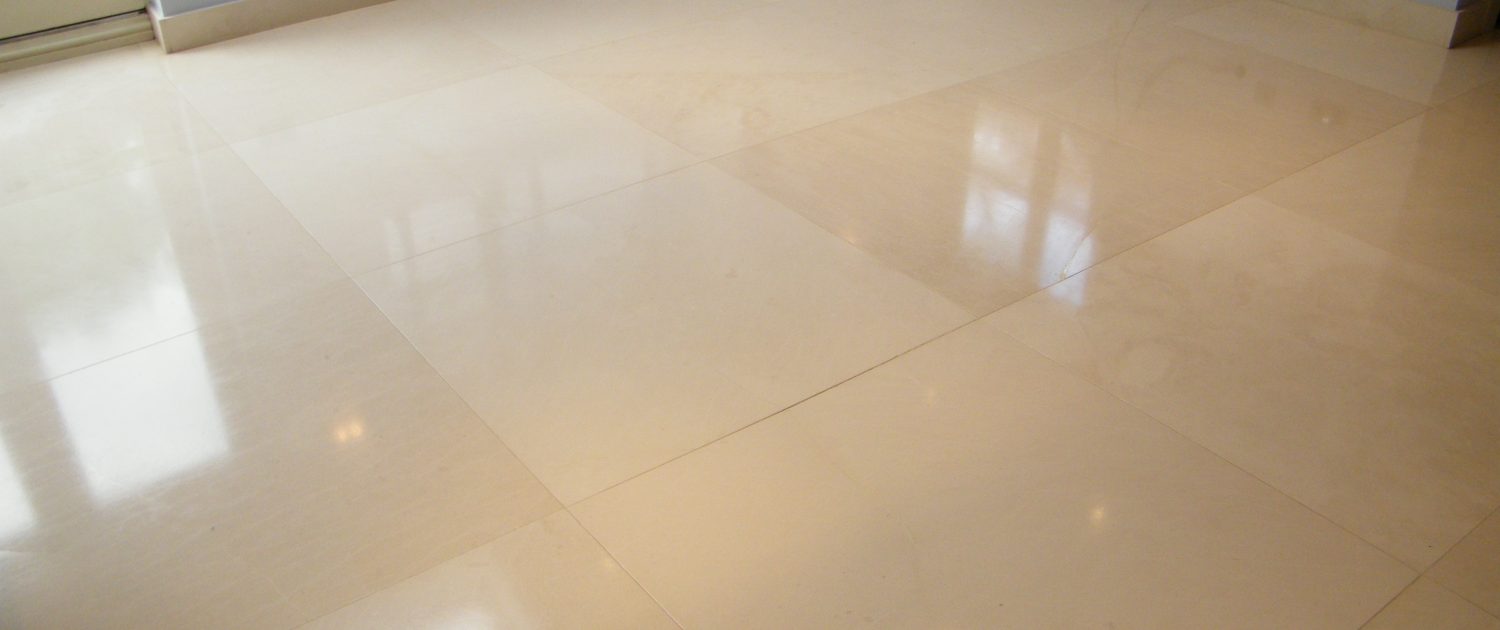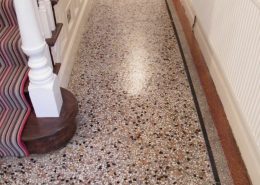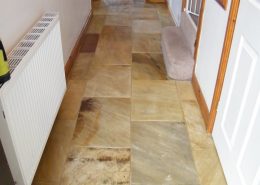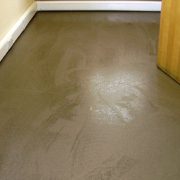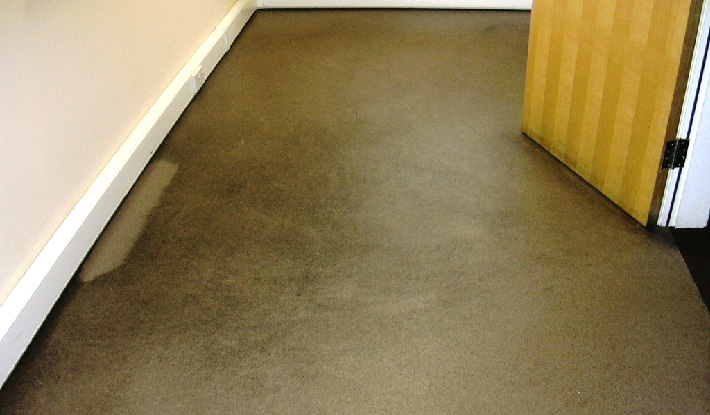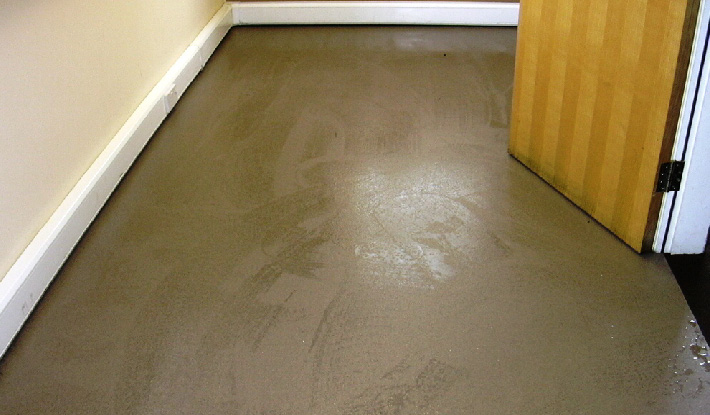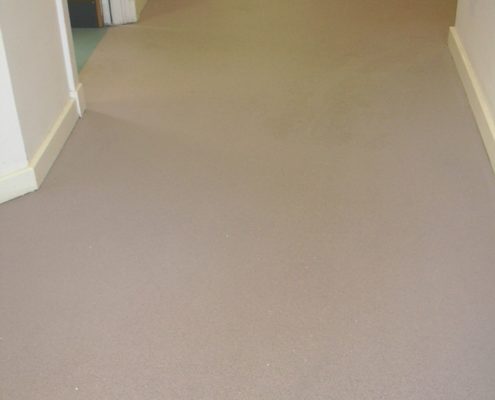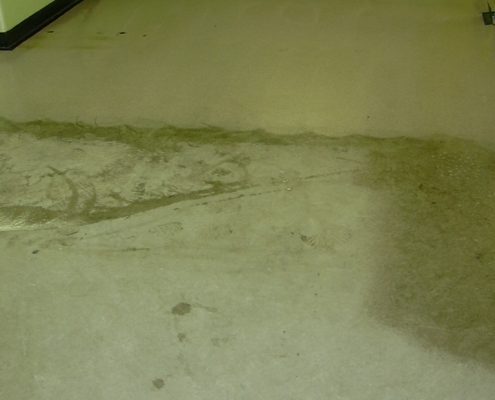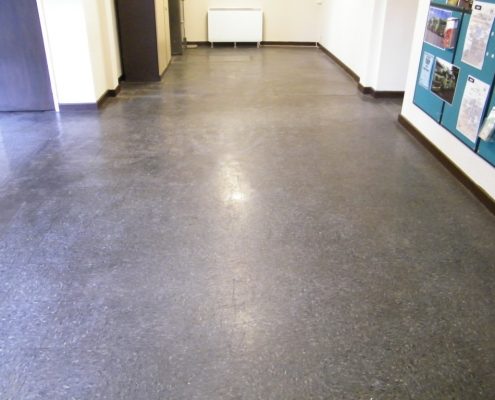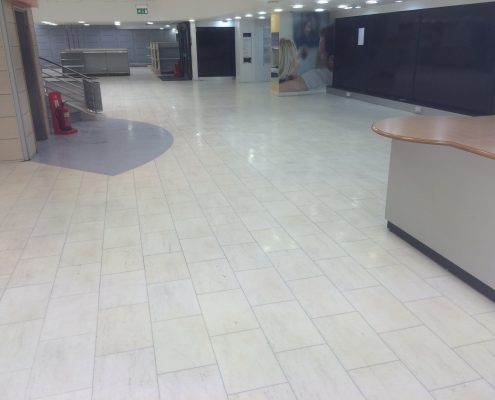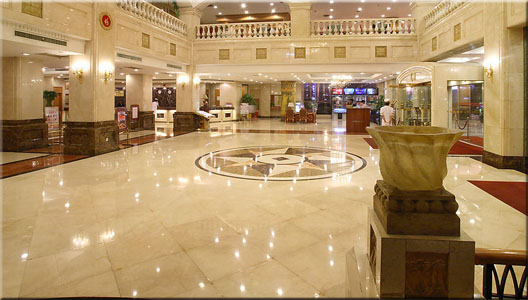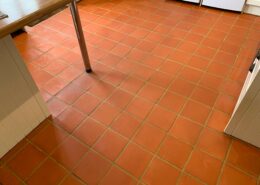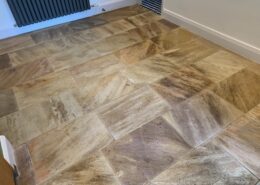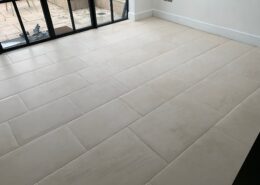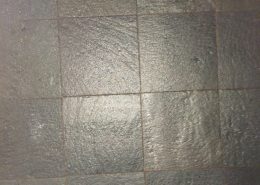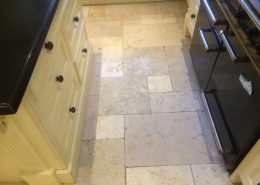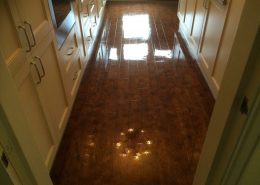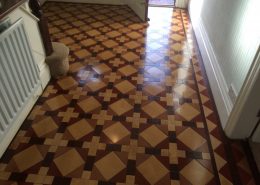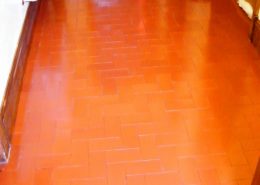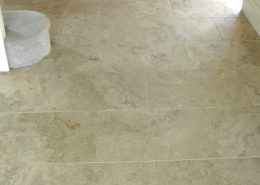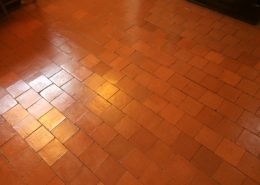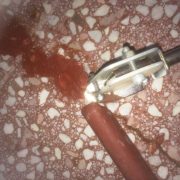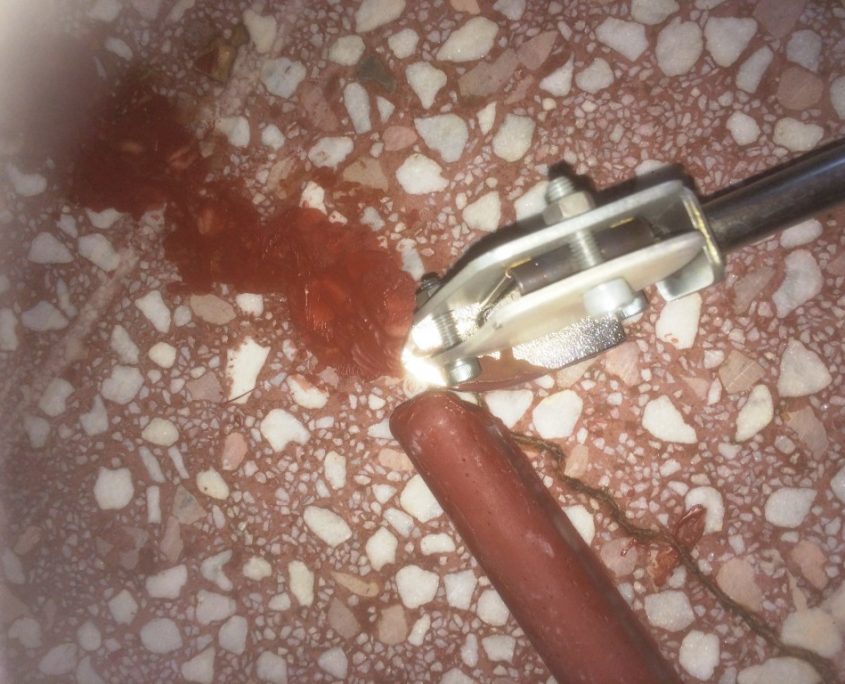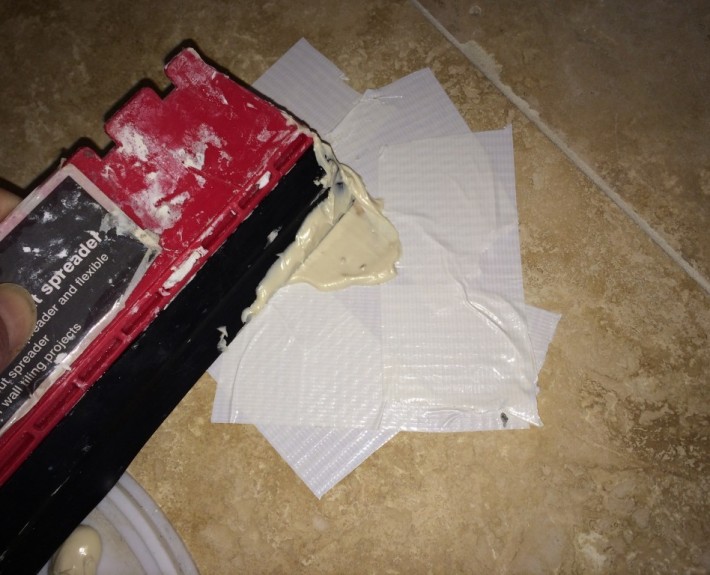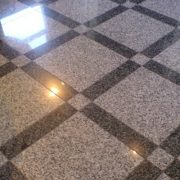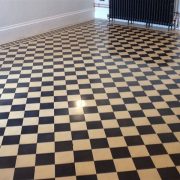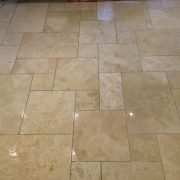Limestone Floor Cleaning and Restoration
Limestone floors
Limestone is a beautiful, naturally occurring stone which is a great choice for any interior. Maintaining limestone can be tough, however, mainly because it’s a porous stone vulnerable to wear and tear. If you think you might need some help restoring the limestone floor in your home or business, get in touch with our friendly team here at Tile & Stone Medic Dorset.
Common problems
Due to limestone’s soft surface, damage can appear quite quickly on this type of rock. Erosion from heavy footfall or damage from specific impacts is common. If your limestone floors have become uneven on top, it may be in need of repair. Limestone is particularly sensitive to acidic liquids such as fruit juices and red wine. Spillages are often the reason for tired-looking limestone floor.
Unfortunately, we do sometimes see damage caused by the use of abrasive cleaning chemicals. This is why it’s absolutely key to find a professional who knows what they’re doing–it’s easy to pick up a product that will actually make things worse for this sensitive stone if you’re inexperienced. Using the wrong products on limestone may actually leave more staining and discolouration on the surface than when you started!
If you use the right products, they should form a protective seal over the top of the limestone which does a great job of protecting it from water damage. If the right products haven’t been used, or if they have not been professionally applied, they can begin to degrade very quickly. If you’ve noticed fading on the surface of your limestone floor, this might be the reason. Poor quality sealant can also trap dirt, darkening the appearance of your limestone flooring and making it almost impossible to clean.
How we maintain limestone flooring
With years of experience in the industry, the team at Tile & Stone Medic Dorset have all the specialist knowledge required to restore your limestone floors back to their former glory.
We normally start our process by gently buffing the surface of the stone with specialist equipment to remove any marks and signs of rubbing. We work carefully so as to avoid additional wear to the soft rock.
All the chemicals that we use are tried, tested and chosen specifically because they won’t harm the sensitive surface of your limestone flooring. Depending on how worn the limestone is, we might need to use different chemicals, but every product we use is perfectly safe for your home or business.
Sealer is essential for limestone, partly so that the finish can be preserved after our work is over and the stone has been fully cleaned. Like all specialist cleaning chemicals we use, the sealer is carefully chosen and applied in order to ensure an aesthetically pleasing and longest-lasting finish.
Will repairing my limestone floor cause disruption?
We won’t need to bring loads of heavy, noisy machinery into your home or workplace to restore your limestone. All our restoration services are completed with an absolute minimum amount of disruption to whatever environment we find ourselves in. The chemicals we use to restore limestone may be specialist, but they will always be totally safe for use. We always take care to maintain the highest standards of health and safety.
If you’re concerned that your limestone floor needs repair or restoration, don’t hesitate to get in touch with Tile & Stone Medic Dorset today!
FAQs: Limestone Cleaning
The process we carry out will depend on your specific floor and the use that it gets. There will be variations for different materials and the finish that you wish to achieve. The process will also be impacted by the full scale of work that we carry out, for example which types of cleaning and restoration are being performed. It is not unusual to apply several layers of sealant if this is necessary and appropriate.
Firstly, a floor should always be sealed when it is first laid. Get in touch with us straight away if this hasn’t been carried out already. It will also need periodic sealing in order to protect the floor on an ongoing basis. How often sealing is required depends on a number of factors such as the specific material used for your flooring and the kind of use it has to survive. For example, a bathroom with natural tiles that is frequently exposed to water may require sealing more often than porcelain tiles in a kitchen. Frequent maintenance, such as sweeping and hoovering up the dust and grit that erodes floors when trodden on can help. Once the sealant is worn away, not only will scratches be more likely, the risk of staining or permanent damage from liquids is drastically increased as there is no protective layer to prevent absorption. If in doubt get in touch with our team of friendly technicians who can discuss your needs.
We have a range of high quality Faber products which will help protect your floors from damage. As every type of floor is different and has myriad uses, we will consult with you to work out the best way to protect your investment. We can apply topical sealants which form a protective layer on top of the floor, or if needed an impregnating sealant, which will be partially absorbed into the stone or tiles. There are many variations of these sealants and as each floor type has unique characteristics and vulnerabilities we can work with you to find and apply the the best kind of protection.
Absolutely. If this was not carried out by those who fitted the floor get in touch immediately to ensure that the appropriate protection can be applied as promptly as possible. We would recommend that this is carried out once the flooring is in place as this means the grout, which is generally more porous, will also be protected.
We apply a sealer to a floor in order to protect it. Different types of floor, both manmade and natural stone, are vulnerable to different sorts of damage. They can all be harmed by chemicals to a certain degree, even by the acid in food and drink spillages, as they will be very slightly porous. As well as this, they can be worn away by physical damage. Even foot traffic can have a big impact if dust or grit has built up on the floor, since it increases abrasions. A sealant will reduce the chance of a spill becoming a stain by reducing the floor’s ability to absorb liquids. It can also help protect the appearance of the floor by forming a protective barrier. A sealant won’t prevent all damage and it will still wear away over time, but it will help your floors last longer, helping protect your investment. Sealants will even help protect your floor from UV radiation which can lead to fading over the lifespan of a high value stone or tiled floor. We can consult with you to find the best sealant for your floor and the type of use it gets to make sure it receives the best form of protection.
We are happy offer advice on best practice to look after your flooring, but it depends on the type of floor you have. Once we’ve had a look at it we’ll be able to help.
Yes, we have a range of fillers we can use to repair chipped or dented stone. Please note we can only carry out floor repairs as part of a full deep clean or restoration for your stone floor. Unfortunately, we are not able to attend to carry out repairs in isolation.
Usually we are able to stabilise stone flooring where it has become loose. We can repair grouting and make spot repairs to the subfloor where necessary. Please note we can only carry out floor repairs as part of a full deep clean or restoration for your stone floor. Unfortunately, we are not able to attend to carry out repairs in isolation.
Almost certainly. Send us a picture or a description and we’ll identify your stone. We always assess a surface before work starts in order to pick the most appropriate solution.
Whilst we may use specialist chemicals in the course of our work, we can assure you that by the time we leave all residues will be gone and your tile or stone flooring will be perfectly safe for everyone to use. We work to extremely high standards of health and safety, conducting proper risk assessments where appropriate and never putting you or anyone else in danger.
We always work in the most considerate way possible. Work will be tailored to your needs and will fit around your schedule where possible. We avoid bringing loud or bulky machinery into your home and when a job is complete we thoroughly clean up after ourselves to leave your space looking as tidy as it did when we arrived.

